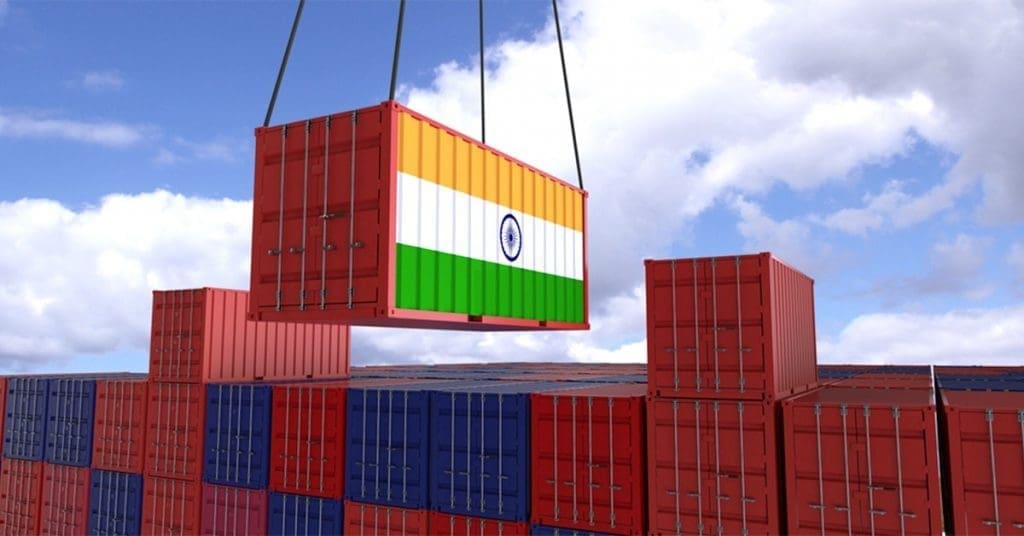India continues to face ongoing challenges in its export promotion schemes as major trade partners such as the European Union (EU) and the United States impose countervailing duties, considering them to be subsidies. Even with the replacement of the Merchandise Exports from India Scheme (MEIS) by the Remission of Duties and Taxes on Exported Products (RODTEP), the issue of WTO incompatibility persists. In order to address these challenges and increase the robustness of Indian export schemes, a framework is suggested.
Customs Duties and Competitiveness: India’s high customs duties, with rates as high as 14.7%, compared to the EU’s 4.1%, necessitate the use of export schemes for competitiveness. Major schemes include the Advance Authorisation Scheme (AAS), Export Promotion Capital Goods Scheme (EPCGS), Duty Drawback Scheme (DDS), RoDTEP, Special Economic Zones (SEZ), and Export-Oriented Units (EOUs).
Challenges Faced: The EU, the US, and other nations view these schemes as subsidies, leading to the imposition of countervailing duties, which neutralize the monetary advantages India offers to its exporters. The primary contention is that these schemes violate the World Trade Organization’s Agreement on Subsidies and Countervailing Measures (ASCM). The dispute between India and the US escalated in 2018, with the US alleging that India’s export schemes contravened the ASCM. India initially planned to appeal the decision but resolved the dispute with the US in June 2022, leading to the abolishment of MEIS.
RODTEP and Countervailing Duties: India introduced the WTO-compatible RoDTEP scheme as an alternative to MEIS in 2021. However, the country still faces countervailing duties from nations including the US and EU. These countervailing duty actions have been imposed on various Indian products, with the EU citing incompatibility with WTO rules for schemes like RoDTEP, AAS, EPCGS, and DDS.
The complexity of Achieving WTO Compatibility: Perfect WTO compatibility presents a complex challenge as each exporter’s transactions need to be reconciled individually, which is administratively burdensome. While schemes like the government’s ‘Brand rate of drawback’ follow this approach, they result in long delays in settling dues. On the other hand, Indian export schemes estimate expenses on an average basis, leading to expedited dues settlement but often resulting in disputes.
Government Response and Proposed Approach: In response to these challenges, the government needs a multi-pronged approach:
Improve the Structure of Export Schemes: Enhancements can be made in export schemes to comply with global trade rules. This includes implementing robust systems to trace raw materials in the AAS, reducing import duties on select capital goods in the EPCGS, and establishing a more effective system for verifying input use in the DDS.
Use Offense as Defense: India should actively raise disputes against protectionist policies and WTO-incompatible schemes implemented by countries like the US and EU. Strengthening India’s setup and panel of experts dedicated to trade disputes would be instrumental in achieving this.
Resist Premature Withdrawal of Schemes: Careful policy-making is essential to avoid the abrupt termination of schemes like MEIS, which play a crucial role in supporting exporters and offsetting high transaction costs.
Examine Customs Duty Structure: Reducing import duties on inputs and capital goods would reduce the necessity for many export schemes, such as SEZ, EOU, A.A., RoDTEP, and Drawback.
Conclusion: It is imperative for India to harmonize its export promotion strategies with international trade norms in order to enhance its global trade footprint while respecting the framework of global trade laws. Achieving this requires adaptability, strategic foresight, and a commitment to aligning domestic objectives with the evolving landscape of international trade.

